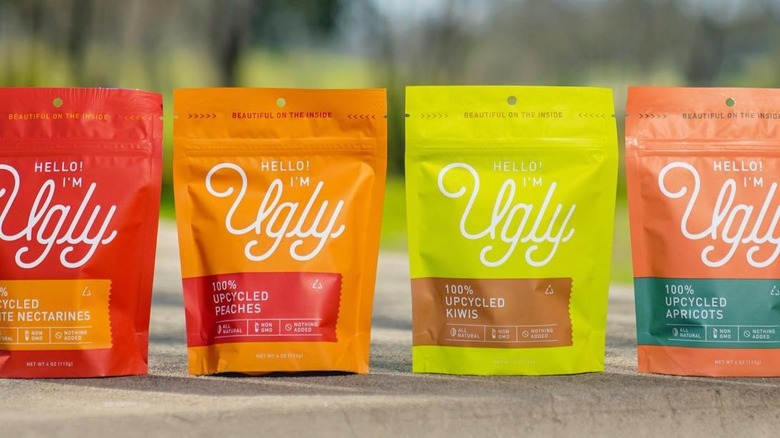Why 'Upcycled Food' Could Be The Next Sustainability Trend
Does upcycling mean that for the sake of sustainability, we would be eating food waste? Not quite. Instead, upcycling uses anything from the leftovers of processing activities — for example, milling — to bruised but edible fruit and vegetables, per Forbes, which are nutritious and fit for human consumption. Upcycled foods, according to The Center for Health Law and Policy Innovation, are "foods [that] are made from ingredients that would otherwise have ended up in any food waste destination."
According to The Conversation, soybean by-products; the leftovers from milled wheat, fruit peels, juice pulp and residue; and pecan nut shells are among the many items that are fit to be converted into sources of nutrition for humans. What food waste are we talking about here? The coffee bean, for example, is the seed of a cherry-like fruit, and when the beans are harvested, these fruits get discarded. A solution to this problem is the conversion of these "coffee cherries" to a viable gluten-free substitute for wheat flour. According to the Coffee Cherry Company, this flour can be used for chocolate cakes, oatmeal cookies, and barbecue seasoning.
Why upcycle food?
According to World Food Program, one-third of food produced for human consumption worldwide is squandered. Where does this wasted food go? It's sometimes converted to animal fodder, incinerated, or placed in tanks where microorganisms digest it (anaerobic digesters), according to Upcycled Food Association (UFA).
We tend to forget that wasted food also has a carbon footprint or "foodprint." Food waste leads to 170 million metric tons of carbon dioxide equivalent, according to a 2021 report by The Environmental Protection Agency (EPA). For every 100 pounds of food waste, 8.3 pounds of methane escapes into the atmosphere, with the methane's impact on the environment 86 times that of carbon dioxide in the last two decades (per Extra Food).
The main benefit of upcycling food is that it marginalizes food waste, per UFA, and in so doing, minimizes the emission of greenhouse gasses into the environment. It can also help increase food production for the world's growing population, without drastically increasing the footprint of food production. "Decreasing food waste can lessen the need for new food production, shrinking projected deforestation, biodiversity loss, greenhouse gas emissions, water pollution, and water scarcity," according to the EPA. For a look at certified upcycled foods, the UFA has a list of certified products.

